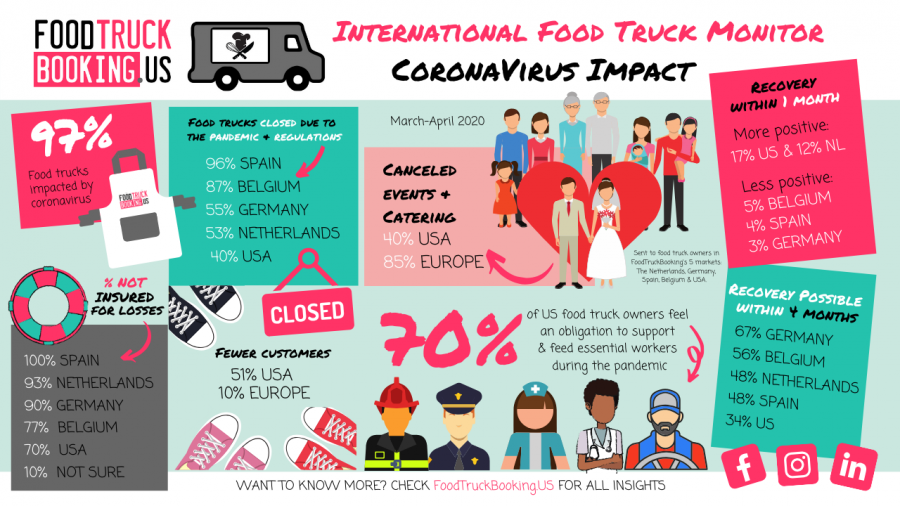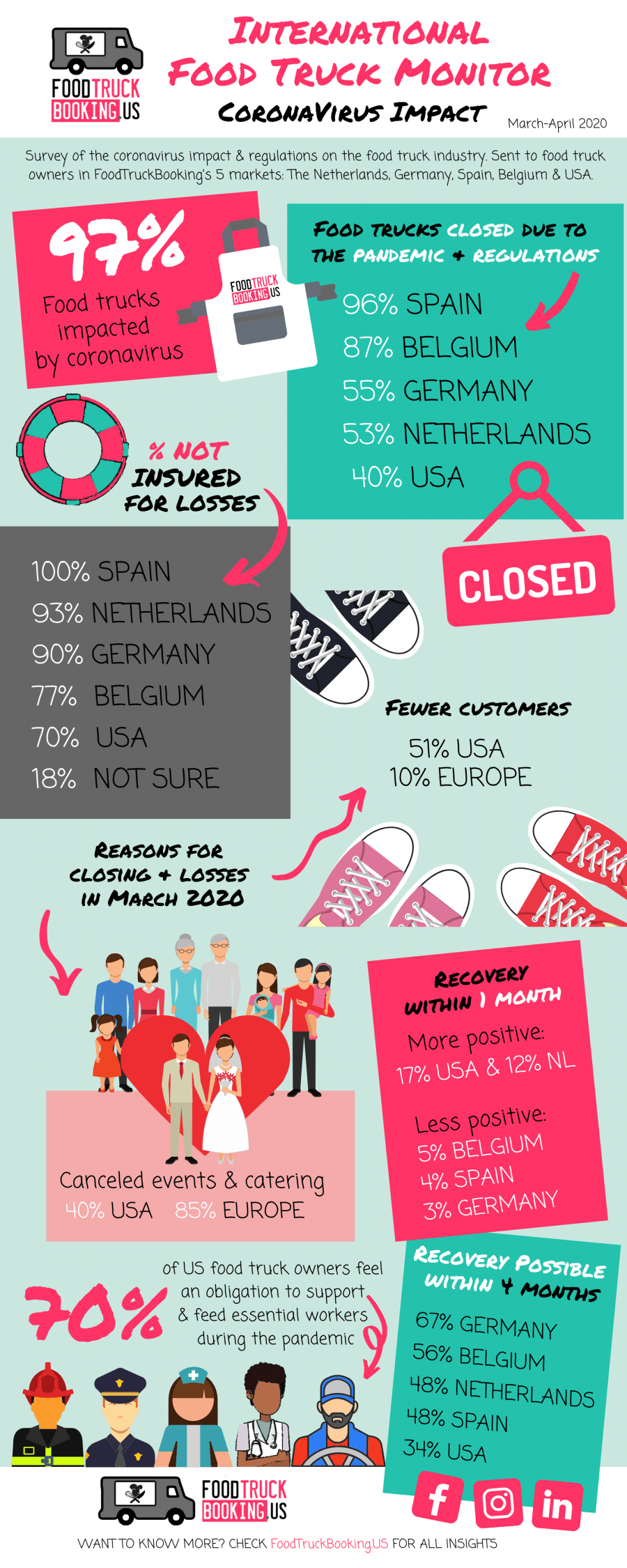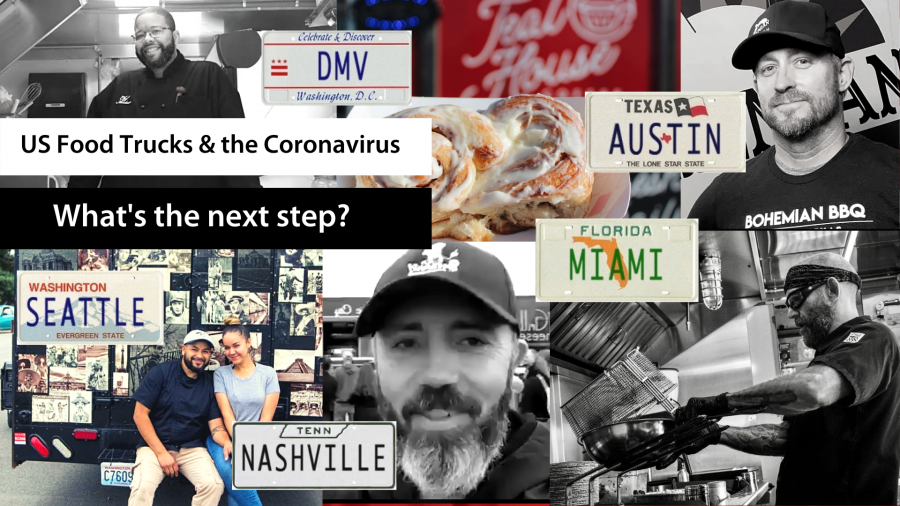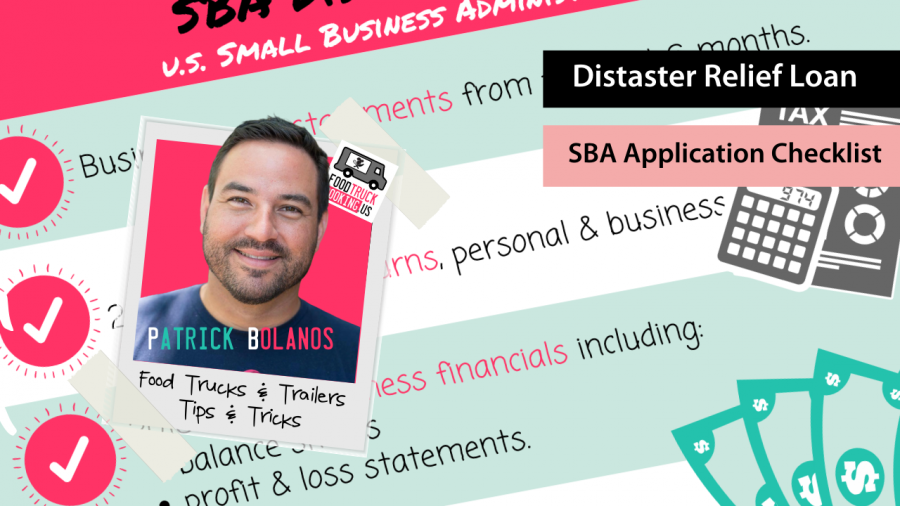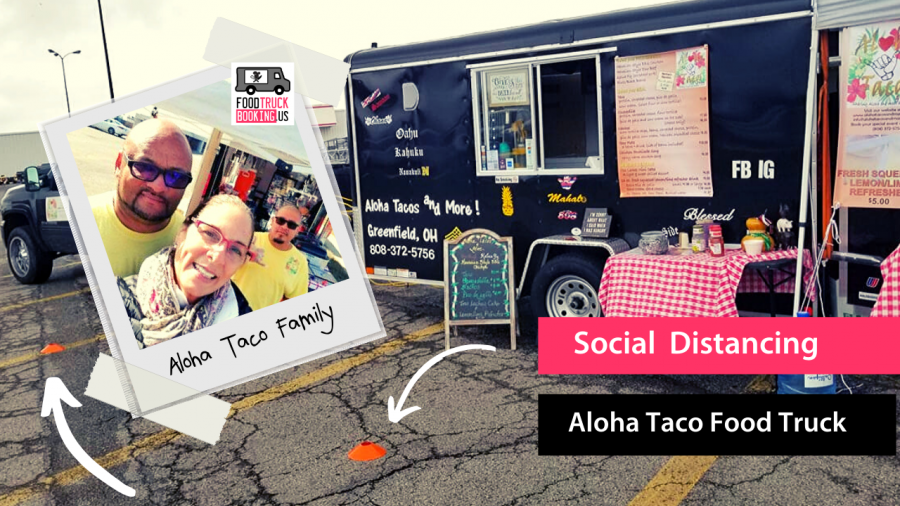SURVEY: Food Truck Industry Hit Hard, But Sees Possibilities
Posted on 04/01/2020 by FoodTruckBooking Editors
The economic consequences from the coronavirus pandemic have greatly impacted 97% of the food truck industry in Europe and the United States, says the International Food Truck Monitor - Coronavirus Impact. A positive sign is that nearly 70% of US respondents of the latest FoodTruckBooking survey feel food truck owners have a role in supporting essential workers during the pandemic. FoodtruckBooking did a research on the effects of the Corona virus among foodtruck operators. The survey was conducted among both members and non-members of the booking platform.
Most food truckers are self-employed with family-run businesses and have no other sources of income. Heavy losses are coming from the cancelations of public events, festivals and parties. Fast changing regulations such as rules for group sizes, total public lockdowns and the border closings between European countries are also having a negative effect on food truck business. The end date for the pandemic and what the financial impact will be is still uncertain for everyone.

